Meet the Members of the Neurosurgery Committee
The Neurosurgery Committee is dedicated to advancing the field of neurosurgical radiosurgery through clinical collaboration, research, education, and advocacy. The committee aims to expand education, promote best practices, foster innovation, support multidisciplinary care, and enhance patient outcomes by ensuring continued neurosurgical involvement in the development and application of radiosurgical techniques worldwide.
ChairpersonVice Chairperson | Members |
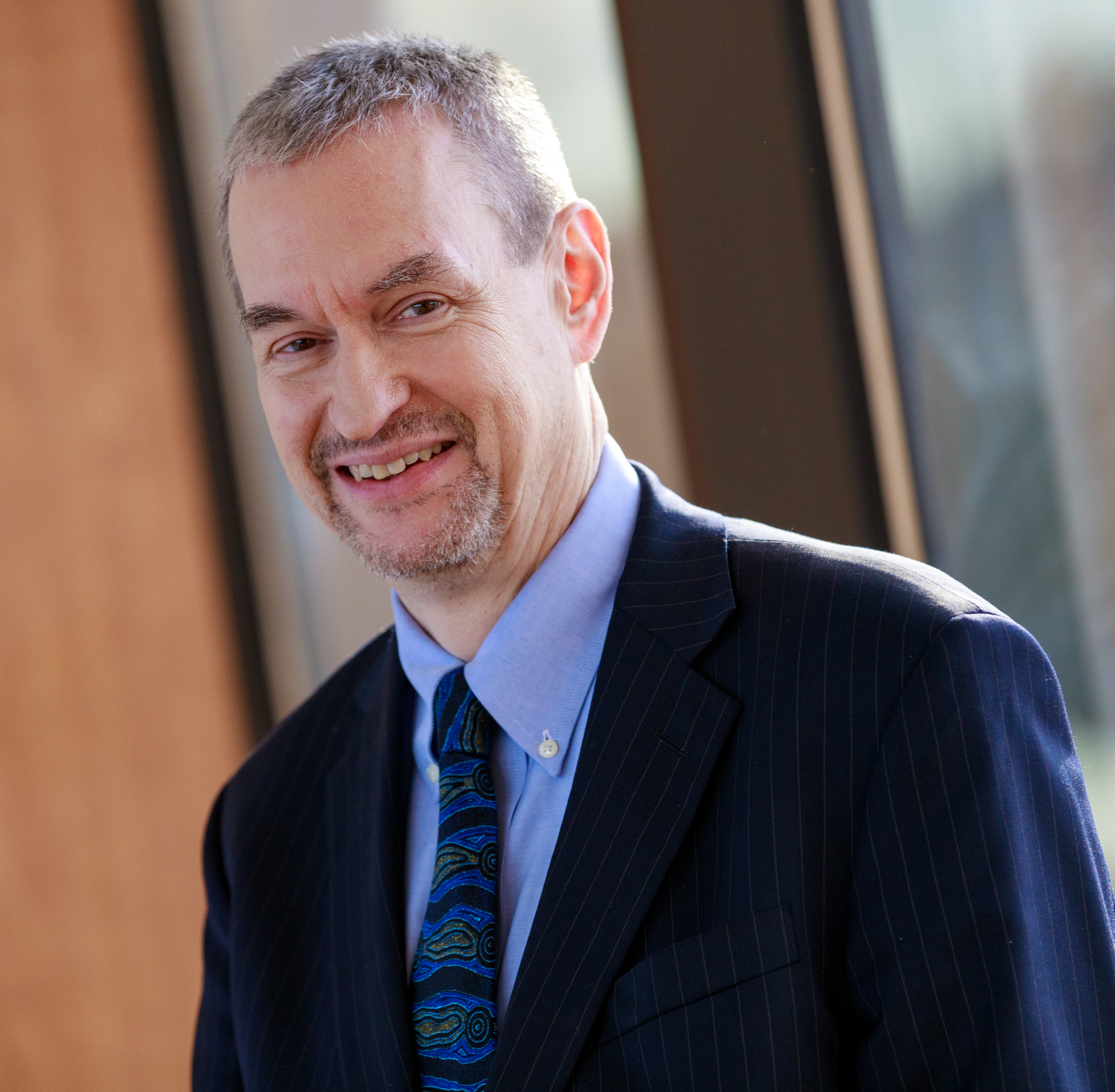
Michael Schulder, MD, FAANS
Chairperson
Michael Schulder, MD, the Chair of the RSS Neurosurgery Committee, is Professor and Vice Chair of the Department of Neurosurgery at the Donald and Barbara Zucker School of Medicine at Hofstra/Northwell. He is the Program Director of neurosurgical residency training at the Zucker SOM, Director of the Brain Tumor Center of the Northwell Neuroscience Institute, and co-Director of the Center for Stereotactic Radiosurgery in the Northwell Cancer Institute. His particular areas of focus include image-guided brain tumor surgery, stereotactic radiosurgery, and functional neurosurgery, on which he has published over 150 peer-reviewed papers along with numerous book chapters and abstracts.
Dr. Schulder runs Northwell’s clinical trials programs for patients with brain tumors. He has been the principal investigator on numerous trials, pioneering the use of various methods of image guidance in neurosurgery, including functional and intraoperative MRI.
Dr. Schulder was director at large of the American Association of Neurological Surgeons, which he also served as the Historian. He is the Past President of the American Society for Stereotactic and Functional Neurosurgery, the World Society for Stereotactic and Functional Neurosurgery, and the New York Society of Neurosurgery. He has served as the Secretary of The Radiosurgery Society. Dr. Schulder is on the editorial board of several major neurosurgical journals, including Neurosurgery, Stereotactic and Functional Neurosurgery, Journal of Neuro-Oncology, and Cancers. He recently served for five years on the Journal of Neurosurgery editorial board. Dr. Schulder is the editor of The Handbook of Stereotactic Neurosurgery and a co-editor of Functional Neurosurgery: The Essentials. He has been named to Castle Connolly’s Top Doctors of the New York Metro Area for more than 20 years in a row, and is an elected member of the American Academy of Neurological Surgery (where he currently serves as Historian) and the Society of Neurological Surgeons.
Dr. Schulder attended the Columbia University College of Physicians and Surgeons. He completed his residency in neurological surgery at Albert Einstein College of Medicine, and further advanced his training in stereotactic neuro-oncology at the University of Florida and at the Brigham and Women’s Hospital, a teaching hospital of Harvard Medical School.

Susan C. Pannullo, MD
Vice Chair
Dr. Susan Pannullo is an internationally recognized clinician, researcher, educator, and healthcare policy advocate. She is board-certified in both neurology and neurological surgery, fellowship-trained in neuro-oncology, and is one of the few neurosurgeons worldwide whose surgical practice has focused entirely on stereotactic radiosurgery. She has been named as a New York Super Doctor, a New York Magazine Top Doctor, a Castle Connolly Top Doctor in New York, and in 2025 was chosen by Castle Connolly as an Exceptional Woman in Medicine.
Dr. Pannullo received her undergraduate degree with honors in anthropology from Cornell University and her medical degree from Cornell University Medical College. She completed a medicine internship at Harvard-Beth Israel Medical Center, followed by a neurology residency at New York Hospital-Cornell Medical Center. After an American Cancer Society fellowship in neuro-oncology at Memorial Sloan Kettering Cancer Center, Dr. Pannullo completed a second residency in neurological surgery at New York Hospital-Cornell Medical Center and Memorial Sloan-Kettering Cancer Center, becoming the program’s first female graduate. She was recruited to NY Presbyterian Hospital and Weill Cornell Medicine in 2002 where she developed neuro-oncology and stereotactic radiosurgery programs from the ground up, and where she successfully treated thousands of patients. She currently serves as Adjunct Faculty in Columbia University’s Department of Neurosurgery and in Cornell’s Department of Biomedical Engineering, as well as Chair of the Board of Trustees of The Washington Center, in Washington, DC.
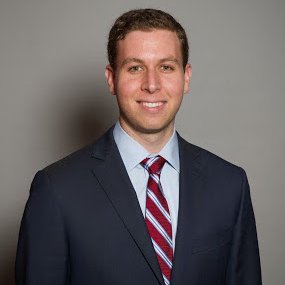
Evan Bander, MD
Evan D. Bander, M.D., is a neurosurgeon, director of endoscopic skull base surgery and co-director of the pituitary tumor program at Baptist Health Miami Neuroscience Institute and Miami Cancer Institute. He specializes in cranial neurosurgery and radiosurgery with a subspecialty focus on brain tumors. He treats both benign and malignant tumors, including skull base tumors, meningiomas, pituitary tumors, craniopharyngiomas, primary brain tumors (gliomas and glioblastoma) and secondary brain tumors (metastases). He completed fellowship training in minimally invasive, keyhole and endoscopic approaches at Weill Cornell Medical College/NY Presbyterian as well as in neurosurgical oncology at MD Anderson.

Julian Cahill, MB, BCh, BAO (Hons), MD, FRCS (SN)
Mr. Julian Cahill was appointed as the Clinical Director of the National Centre for Stereotactic Radiosurgery in November 2020. He qualified from University College Cork, Ireland. He completed his Specailis Neurosurgery training in the West Midlands, UK in 2014. Following that he went onto sub-specializing further and completed the Royal College of surgeons accredited Fellowship in Neuro Oncology at the Wessex Neurological Centr, University Hospital Southhampton and the Stereotactic Radiosurgery Fellowship, at the National Centre for Stereotactic Radiosurgery, Sheffield.
He has extensive experience of working overseas including Ireland, USA and Australia. His areas of specialist expertise are Neuro Oncology and Sterotactic Radiosurgery. He was appointed as a Consultant in Neurosurgery with a specialist interest in Stereotactic Radiosurgery in May 2020. He has a strong research background and was awarded a doctoral research degree(MD) by the University College Cork for his translational research carried out at the Loma Linda University Medical Centr, LA, USA. His research track record includes multiple peer-reviewed publications, book chapters, and presentations in national and international meetings.
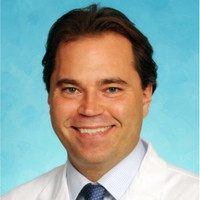
Christopher P. Cifarelli, MD, PhD, MMM, FAANS, FACS
Christopher P. Cifarelli, MD, PhD, MMM is a fellowship-trained neurosurgeon and academic leader specializing in stereotactic radiosurgery and neuro-oncology. He currently serves as Professor of Neurosurgery and Radiation Oncology at West Virginia University, where he directs the Gamma Knife Radiosurgery Center and the WVU System Brain Tumor Program. His clinical expertise and leadership have driven the expansion of radiosurgical services across a 26-hospital network, with a strong emphasis on multidisciplinary integration, clinical efficiency, and access for rural and underserved populations.
Dr. Cifarelli is internationally recognized for his work in intraoperative radiotherapy (IORT), having treated the first patient in the United States with IORT for newly diagnosed glioblastoma as part of the INTRAGO II international trial. He subsequently established and leads an international registry focused on IORT for metastatic brain tumors, contributing to a growing body of evidence on the role of radiation in surgical neuro-oncology. His research interests include the biological determinants of radiosensitivity, redox modulation in glioma, and radiation-induced immune priming.
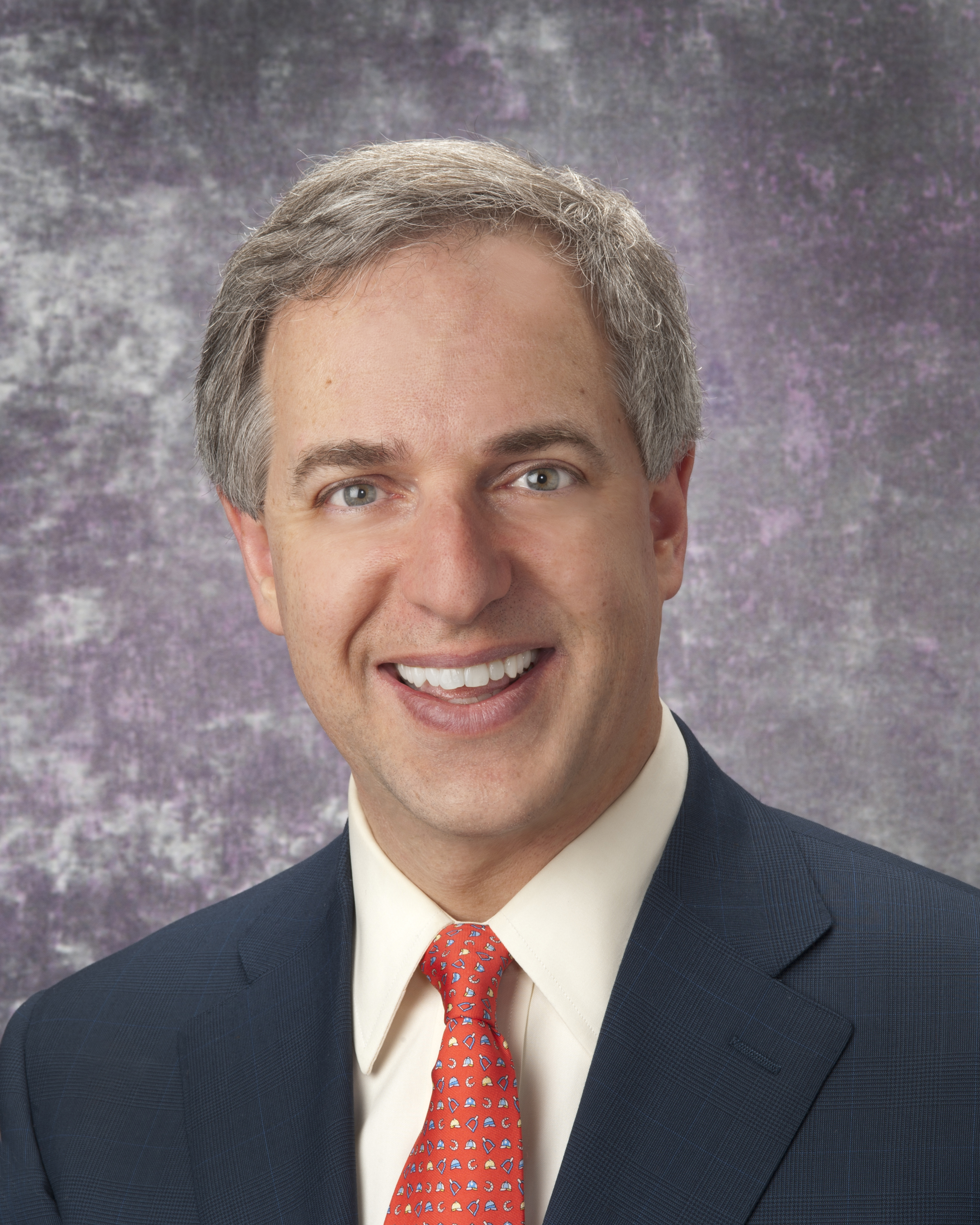
Peter Gerszten, MD, MPH, FACS
Peter C. Gerszten, MD, MPH, is the Peter E. Sheptak Professor of Neurosurgery at the University of Pittsburgh. Dr. Gerszten joined the Department of Neurological Surgery and the UPMC Spine Services Division in 1999. He received his undergraduate degree from the University of Virginia and completed his medical degree at the Johns Hopkins School of Medicine. He completed his residency in neurological surgery at the University of Pittsburgh Medical Center. Dr. Gerszten obtained a master of public health degree from the University of Pittsburgh Graduate School of Public Health. He completed a fellowship in spinal surgery at the University of Pittsburgh Medical Center.
Dr. Gerszten specializes in disorders of the spine. His areas of clinical interest within the field of neurosurgery include spinal tumors, failed back syndrome, stereotactic radiosurgery of spinal lesions, minimally invasive spine surgical techniques, sacroiliac dysfunction, compression fractures, and percutaneous techniques including neuromodulation. Dr. Gerszten’s area of research is the application of outcomes research to spinal surgical interventions. He is a pioneer in the field of spine radiosurgery. His current clinical research involves the use of electrical spinal cord stimulation for a variety of neurological disorders including stroke, spinal cord injury, and spinal muscular atrophy.
Dr. Gerszten currently serves on the editorial boards of The Spine Journal, the Journal of the North American Spine Society, Neurosurgery, and The International Journal of Spine Surgery.

Rupa Juthani, MD, FAANS, FCNS
Dr. Rupa Juthani is a fellowship-trained neurosurgeon practicing with Neurosurgeons of New Jersey and as a Clinical Assistant Professor at NYU Langone. Dr. Juthani has advanced expertise in brain tumors and skull base surgery, specializing in endoscopic skull base surgery, laser surgery, and brain and spine radiosurgery. She treats a wide range of complex conditions including pituitary adenomas, skull base tumors, meningiomas, gliomas, brain metastases, cavernous malformations, arteriovenous malformations, and trigeminal neuralgia. As the Director of Endoscopic Pituitary and Skull Base Surgery at Valley Hospital, Dr. Juthani brings a depth of knowledge and precision to every case.
Dr. Juthani received her undergraduate degree at Duke University followed by an M.D. at the University of Virginia. She completed her neurosurgical residency at the Cleveland Clinic, where she served as chief resident, followed by fellowship training at Memorial Sloan Kettering Cancer Center. Her research has focused on novel multi-modal platforms for the treatment of brain tumors, including the use of ultra-small nanoparticles and CAR-T therapies. Dr. Juthani currently leads clinical trials for glioblastoma and other brain tumors at The Valley Hospital. Dr. Juthani has received national recognition for her work and is committed to education and mentorship.
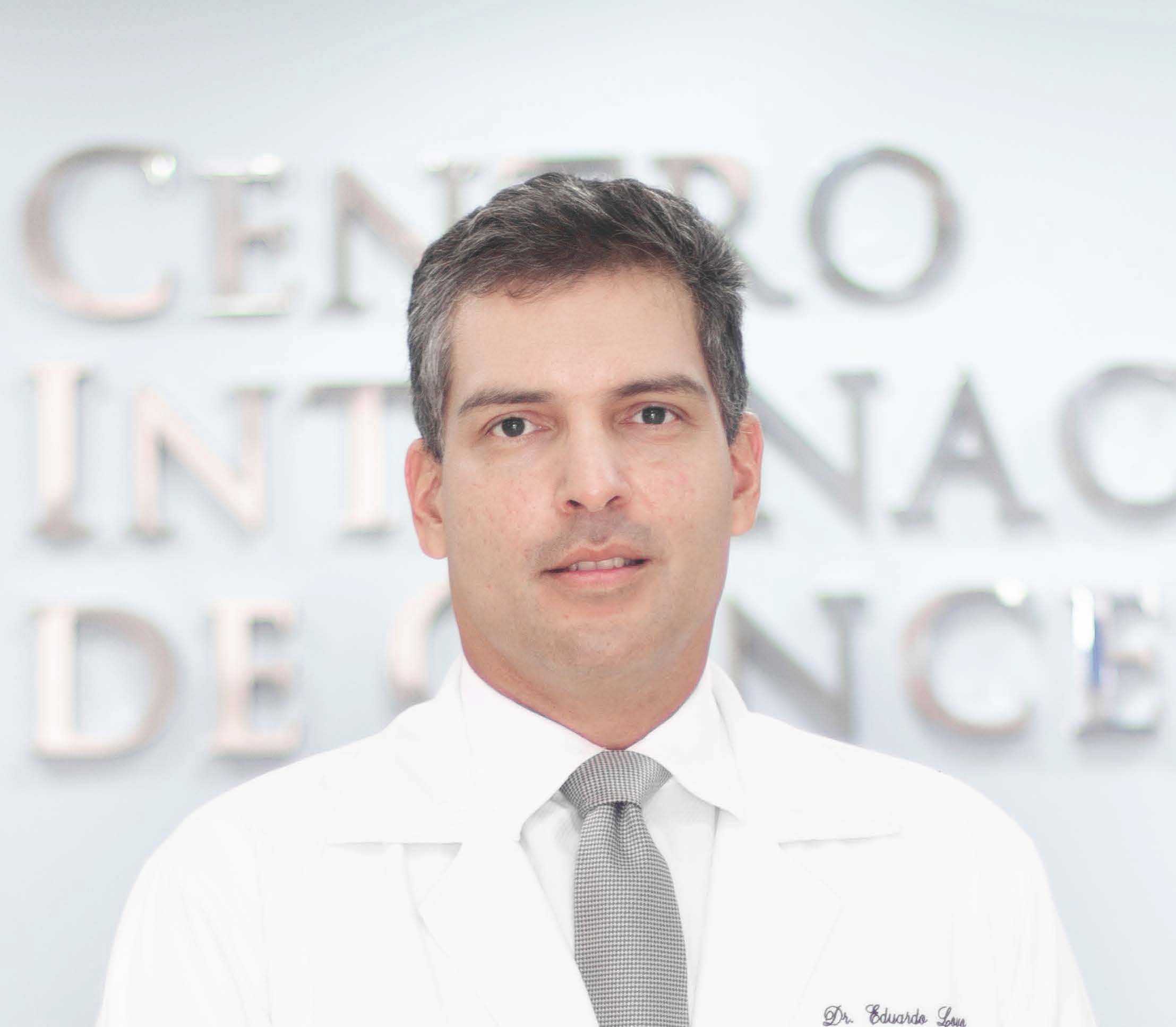
Eduardo Lovo, MD, MSc
Dr. Eduardo Lovo is a neurosurgeon trained in brain tumors and radiosurgery. He is the current Gamma Knife program director in the International Cancer Center in El Salvador, an ISRS certified center. He is also cofounder of the Cyberknife Center in San Jose, Costa Rica. He has published over 30 articles pertaining to neurosurgery and radiosurgery. He holds a Master's degree in CNS radiosurgery and is a current professor of Radiosurgery in Spain. His main focus is connectomic-based functional radiosurgery and making radiosurgery accessible in Central America.

David Park, MD, PhD, FCNS
Dr. David J. Park is a neurosurgeon specializing in neurosurgical oncology, skull base surgery, and radiosurgery. He has extensive international training and expertise in minimally invasive techniques, including Gamma Knife and CyberKnife stereotactic radiosurgery (SRS), as well as laser interstitial thermal therapy (LITT). Dr. Park completed neurosurgical clinical fellowships at leading institutions such as Seoul St. Mary’s Hospital in South Korea, the National Neuroscience Institute in Singapore, Massachusetts General Hospital, North Shore University Hospital, Cleveland Clinic, and Stanford University. He is currently a Clinical Assistant Professor at Stanford University, focusing on brain tumors (neurosurgical oncology) and radiosurgery. His research interests include fluorescence-guided surgery, endoscopic minimally invasive techniques, bioengineering in medical devices, stem cell therapies for glioma, and the role of fatty acids in glioblastoma.
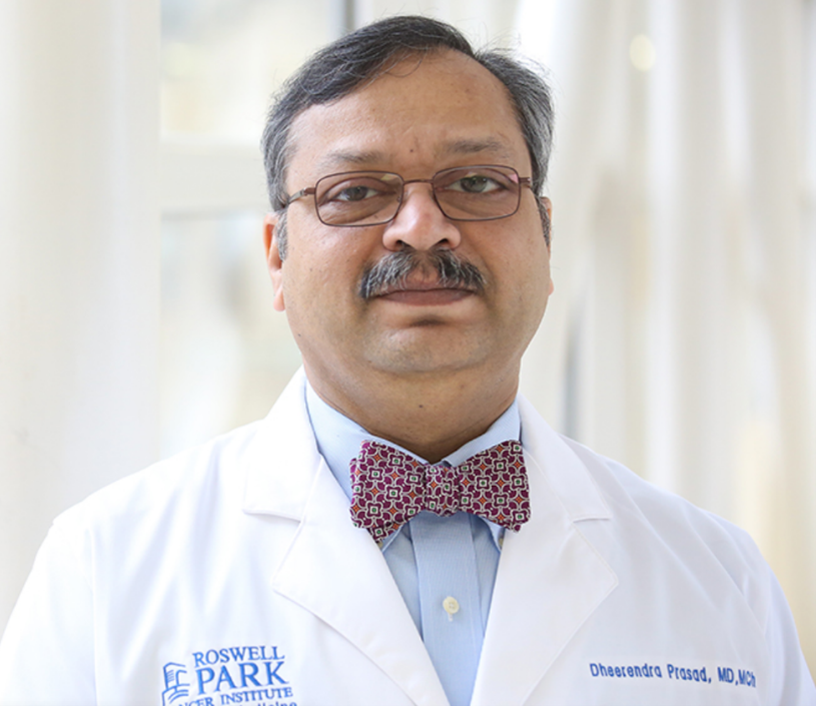
Dheerendra Prasad, MD
Dr. Dheerendra Prasad is dual certified as a Neurosurgeon and Radiation Oncologist who has practiced Radiosurgery for 30 years. He serves at the Chief of Division of Radiosurgery at Roswell Park Comprehensive Cancer Center. A strong believer in the complementarity of Microsurgery, Endovascular Surgery and Radiosurgery, his practice includes patient with all indications from functional to malignant. He has published over 100 papers and lectures extensively. He has been he Past Chairman of the Leksell Gamma Knife Society and serves on the Scientific Committee of the ISRS. “My mission in Radiosurgery has been that of educating practitioners and referring physicians alike – Saving brains by changing Minds” says Dr. Prasad of his core philosophy.